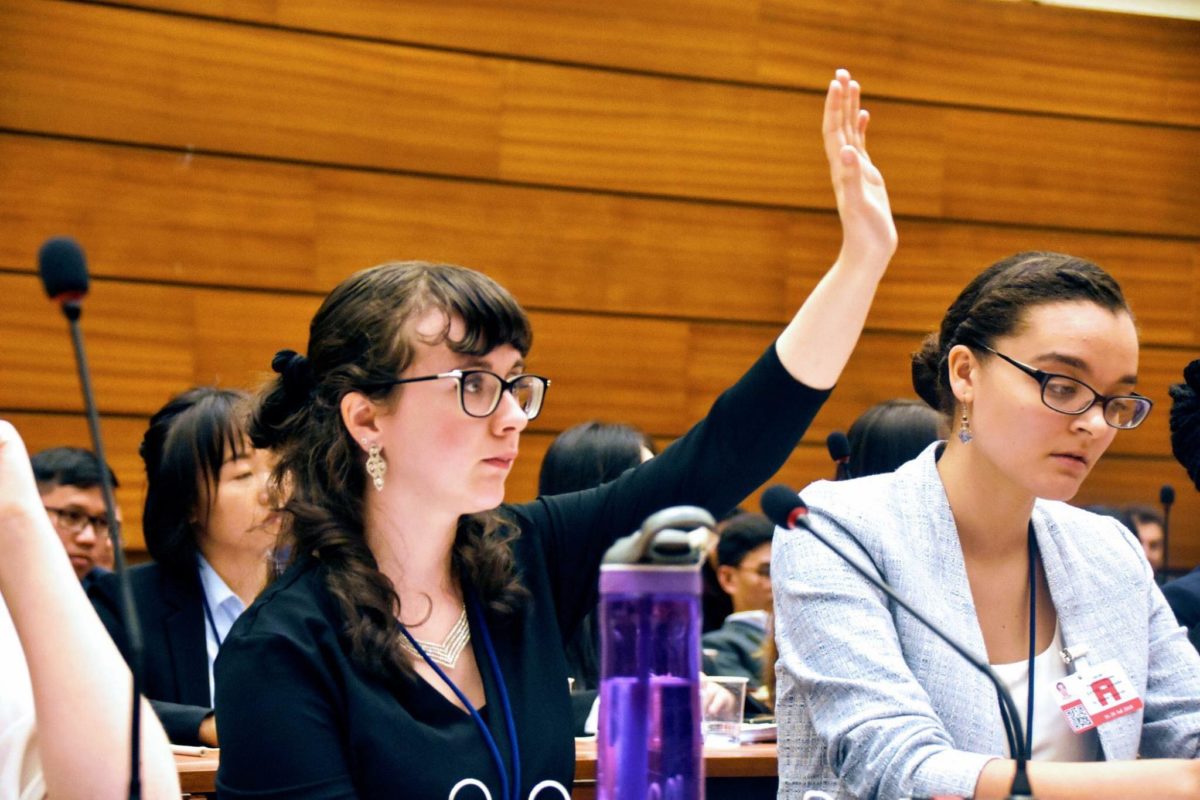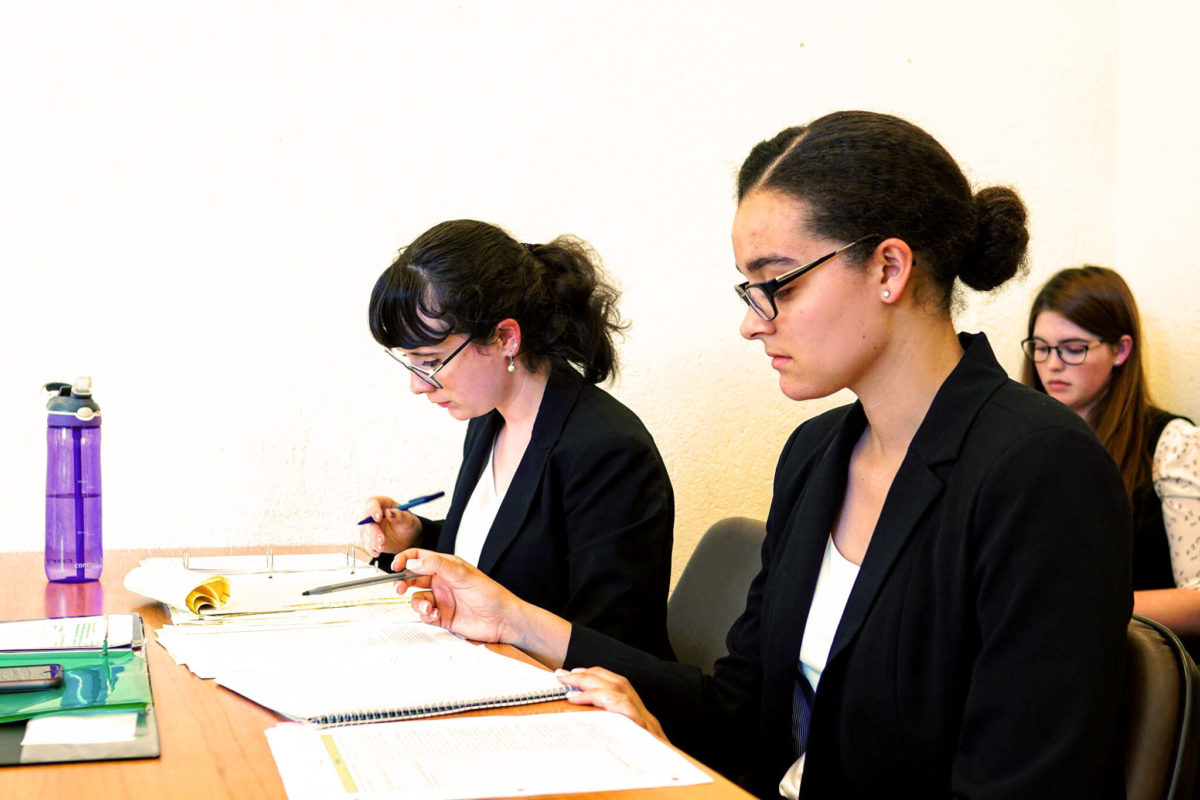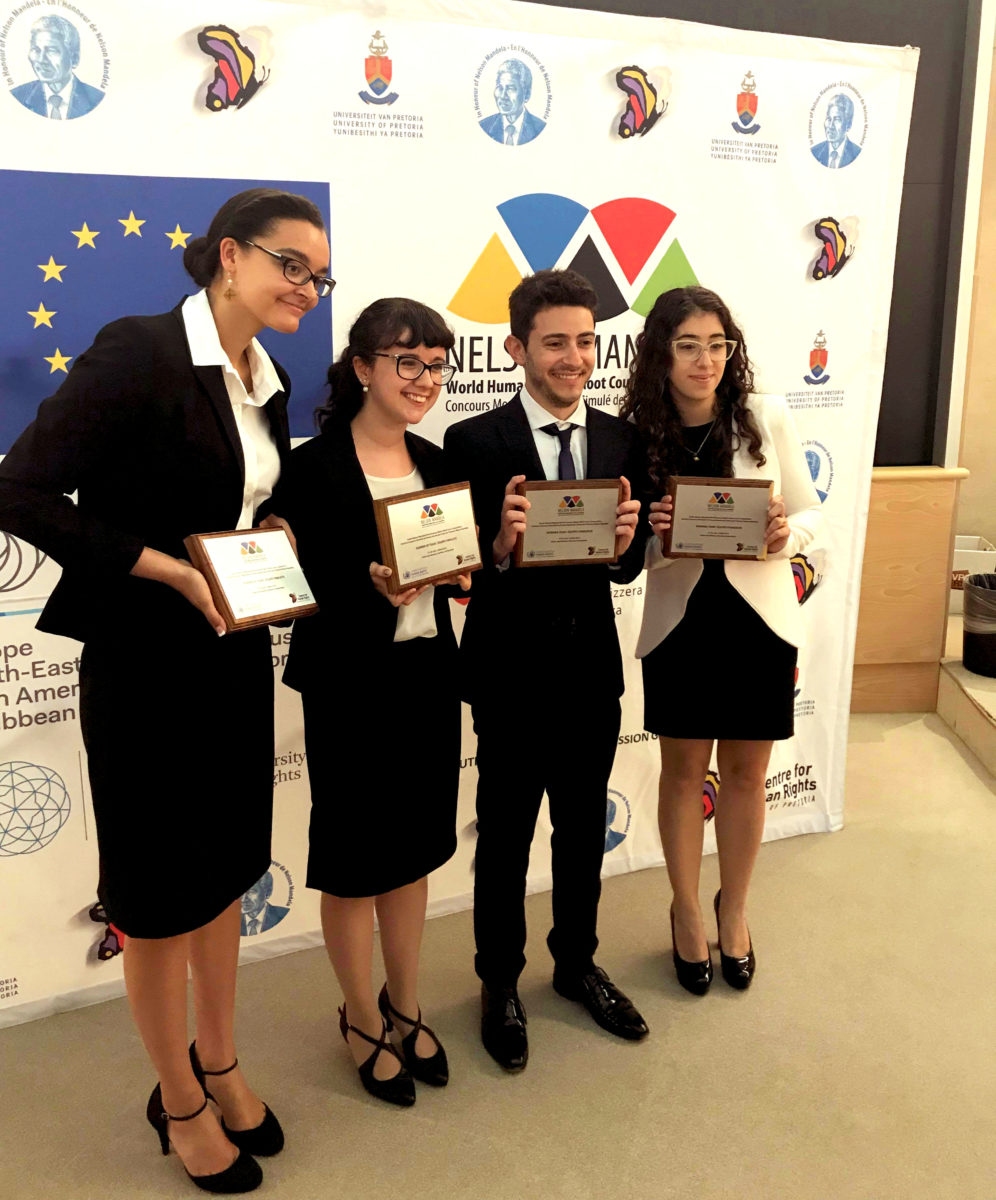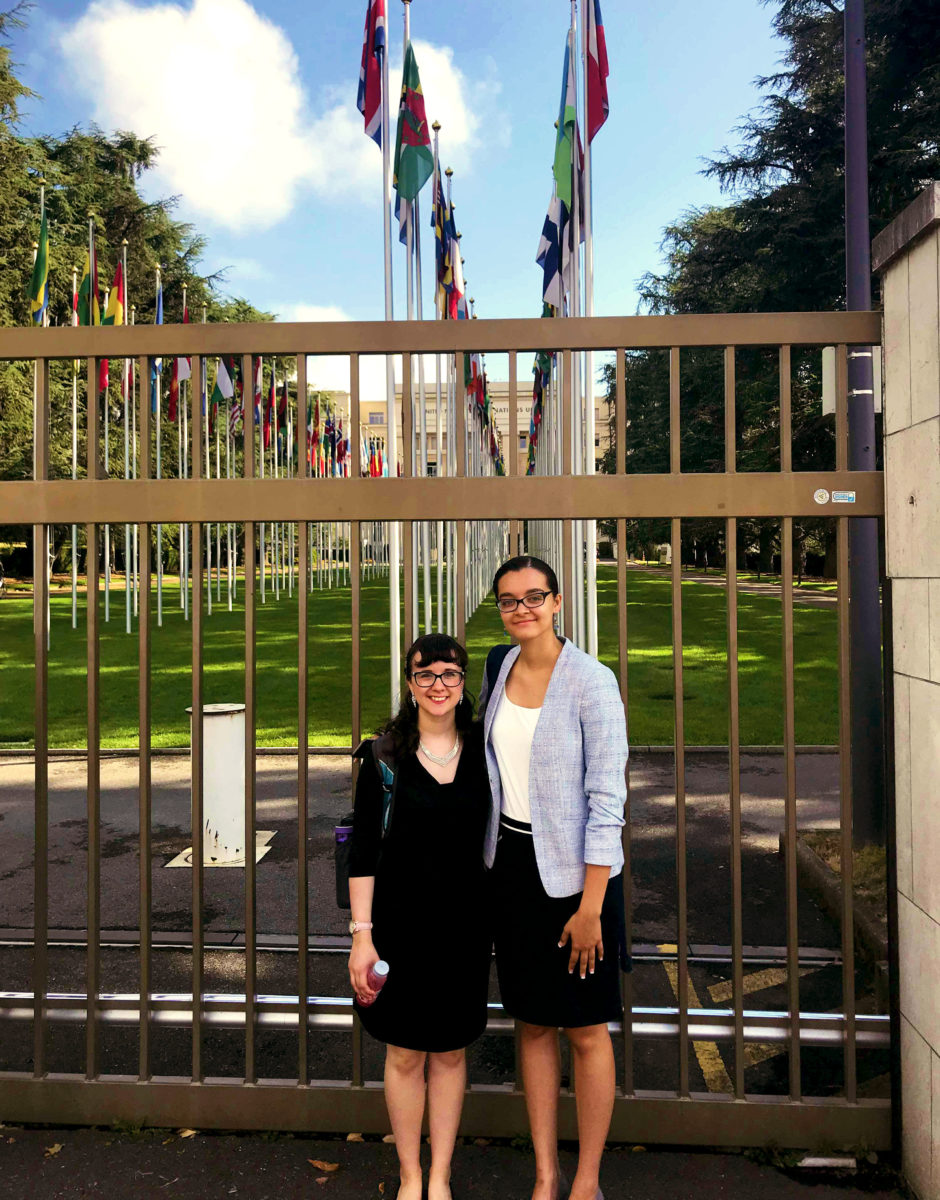
Emily Williams, a St. Thomas University human rights and criminology major, knew she wanted to be lawyer when competing at the Nelson Mandela World Human Rights Competition in Geneva, Switzerland.
Williams and her moot court partner, Camille Xavier, placed second in the competition on July 20, after facing the University of Buenos Aires in the finals.
The competition, which is open to master’s degree and undergraduate students, is now in its 10th year. This is the second time STU has been the only Canadian team to qualify.
However, as an undergraduate student honouring in human rights, Xavier said she wasn’t surprised by the arguments made by other teams.
“It was a bit reassuring to get there and see that people had also come up with very similar arguments, so it kind of demonstrated that we are along the same train of thought,” she said.

Standing out
To qualify for the competition, each team had to submit a written brief on a hypothetical case. Only 10 teams with the best arguments from each United Nation region were invited to participate in the competition.
In Geneva, teams had to argue both sides of a hypothetical case, as applicants and respondents, while being judged by a panel of human rights professionals.
This year, teams were expected to prepare arguments covering admissibility, the right to life, the prohibition of torture and the right to found a family.
According to Williams, most teams had their first speaker focus on admissibility and the right to life and their second speaker focused on torture and family.
However, STU’s team chose a different method. Williams focused on admissibility and family, while Xavier covered torture and the right to life.
“Torture was the most contentious issue of all of them so the judges were really interested. The people who were [arguing] torture and family, by the time they got to family, they often had about two minutes left so they really didn’t have time to flesh out their argument,” Williams said.
“Then I would get up there and have 10 minutes to talk about [the right to found a family] and I think that really allowed us to stand out because people actually had an idea of why their family rights had been violated or hadn’t been violated.”
This method proved successful, as both Xavier and Williams placed within the top 10 oralists of the competition.
Williams placed 5th and Xavier placed 8th.
“I was really pleased with that, because that was my goal, to be in the top five,” Williams said.

Overcoming expectations
Xavier and Williams faced the Army Institute of Law of India as the respondent in the semi-finals, coming out on top by 1.7 per cent.
“Even if we hadn’t moved past the semi-finals, getting to the top four is an accomplishment considering all the other teams that are there,” Williams said.
The duo advanced to the final round to compete against the University of the Buenos Aires of Argentina – the same team STU faced in the finals last year.
“[The same teams making it to the finals] is a testament to how well our respective universities are at preparing us for the competition and for mooting in general,” Xavier said.
In 2017, alumna Navy Vezina and fourth-year student Abbie LeBlanc qualified for the competition as the first Canadian team to ever do so, which led to their eventual victory against the University of Buenos Aires in the finals.
Williams and Xavier, however, didn’t focus on expectations from last year.
“There was some pressure, not just because of [last year], but also the success of STU moot in general,” Williams said. “But we found it really easy to just stay in the moment and focus on each individual round and for me at least, it really helped me stay focused and I didn’t think about what was at stake.”
‘Looking for a conversation’
Williams and Xavier attribute their strict practice schedule and preparation to their success, but after arriving at the competition, they still faced some unexpected challenges.
“The biggest challenge was probably the style of judging because it’s different from what we’re used to in the American Moot Court Association. In American moot court, they’re very fact driven and they really like it when you use a lot of case law,” Williams said.
“But here, they were really looking for a conversation and didn’t want you to rely on case law. They wanted to know what your thoughts were on the issue and then connect it to the case law just to see a basis of your thoughts.”

Mandela’s centennial
July 18 marked the 100th birthday of Nelson Mandela, the namesake of the competition.
Justice Mogoeng Mogoeng of the South African Constitutional Court, gave a speech to commemorate the centennial birthday of Mandela.
“[He] gave a wonderful, inspiring speech about the willingness to stand up for human rights and also to confront racism head on,” Xavier said.
“I think it really spoke to the heart of the competition and that it was beyond being there to compete. It was an amazing experience given what [Mandela] represented and what [he] has done.”
Both Williams and Xavier want to attend law school after graduating from STU.
“I kind of figured that out in American moot court but being in this environment and being at the UN, I was like, ‘Yeah, I can picture myself here,’” Williams said.
